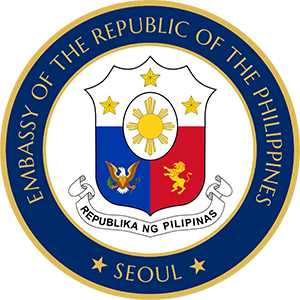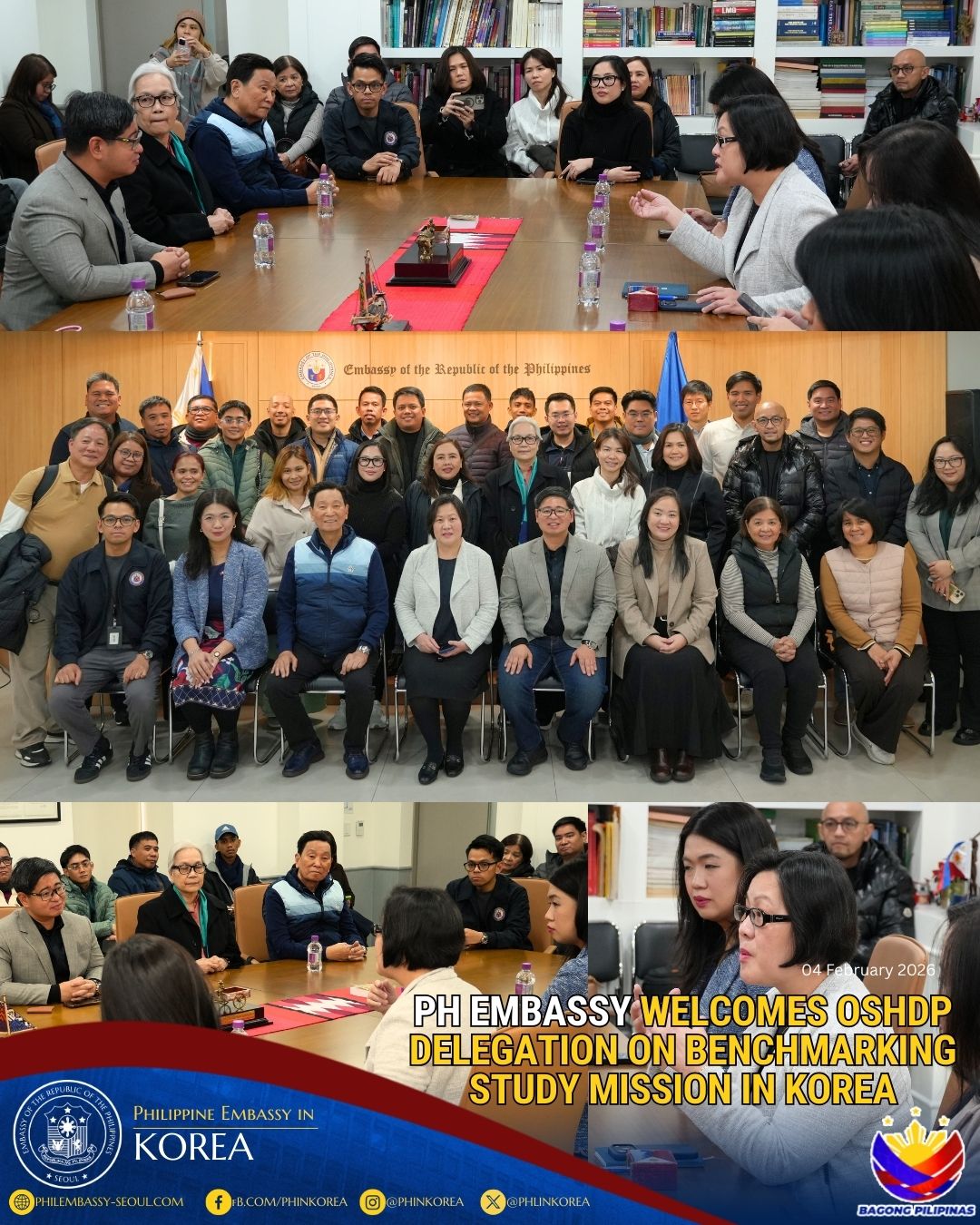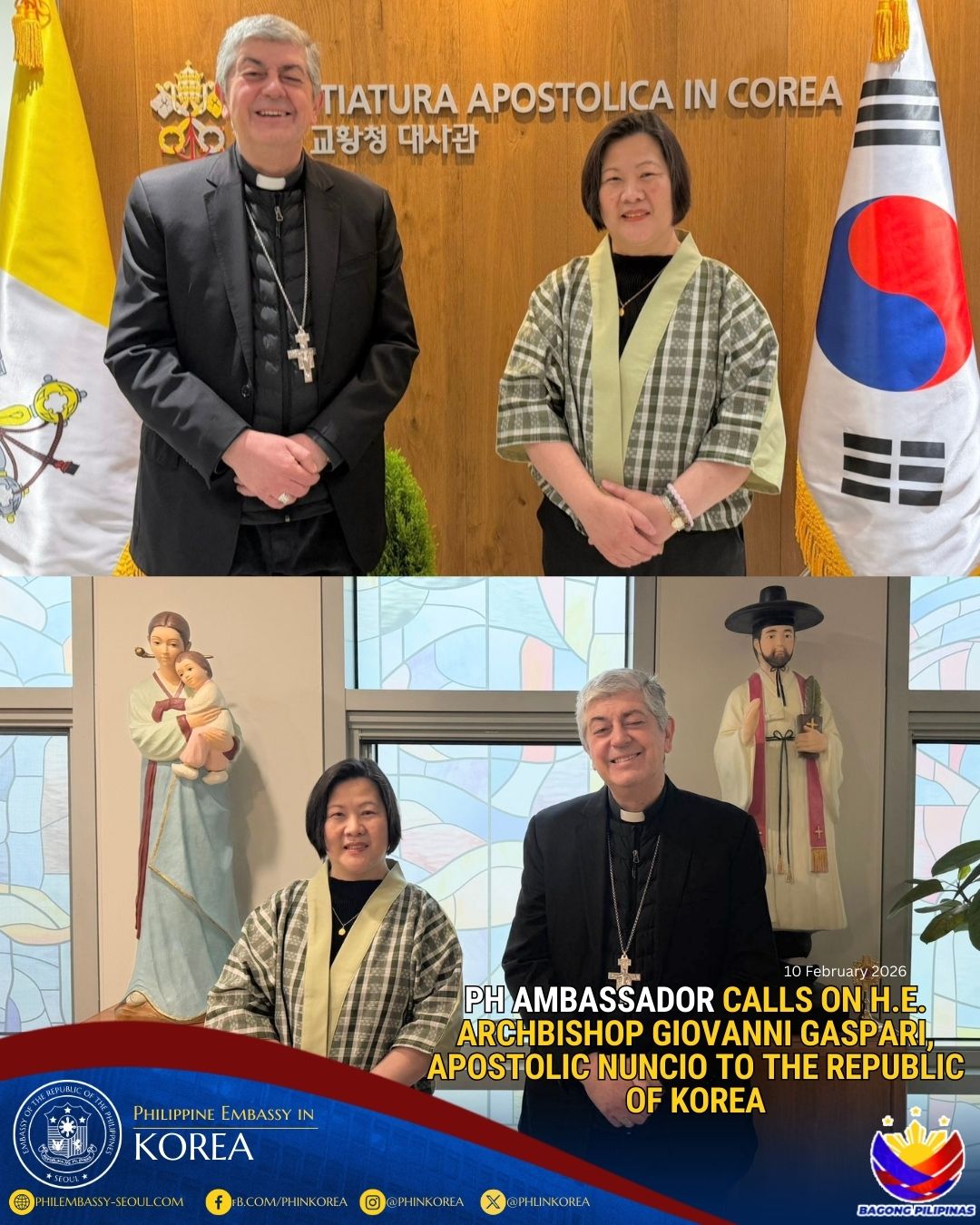Philippine-Korean trade rising
Most Filipinos recognize the importance of the economic relations between the Philippines and Korea. How does the Philippine Trade and Investment Center of the Philippine Embassy in Seoul operate and promote trade and investments?
Bilateral trade between the countries has been growing since the 1960s. By 2007, Korea ranked as the Philippines' 7th largest trading partner, 10th export market and 7th import supplier. Total trade amounted to $5.09 billion as exports grew 25.3 percent to $1.8 billion and imports expanded 3.4 percent to $3.3 billion over 2006. As in the past, the Philippines incurred a trade deficit, this time amounting to $1.5 billion, in view of the composition of goods being traded. Top Philippine exports to Korea include: electrical/electronic parts and components, copper cathodes, bananas, coconuts, other food items including fresh pineapples, mangoes, shrimp and other marine products. Philippine imports from Korea consist of electrical/electronic parts and components, watch components, petroleum, textile fabrics and chemicals. Electrical/electronic parts and components will continue to dominate the exchange of goods as chaebol Samsung and LG expand their plants in the Philippines and as other global electronic companies bring parts for assembly and re-export to Korea and other countries. Shipbuilding components and automotive parts will become major products for trade as Korean companies start and expand their operations in the country. These include Hanjin Heavy Industries and Hyundai/KIA and their parts suppliers. The growing number of Korean tourists, students and retirees traveling to and living in the Philippines will create further awareness of Philippine goods and services. Together with the increasing number of Filipino exporters promoting their products in Korea, more Philippine products will find their way in the Korean market. These products include: fresh and processed foods such as ice cream, snacks, biscuits, confectionery, spices and condiments; organic and natural food and personal care products like papaya soap and organic coconut oil; fashion accessories; high-end furniture; gifts and housewares and construction materials; IT services as ESL language training, animation, engineering design and architectural services for Korean companies and their customers overseas. The growing affluence and sophistication of Korea's population, more women in the workforce and a well-travelled and young population looking for foods with international flavor create opportunities for new and processed foods and beverages. Korean consumers also prefer natural, fresh and healthy foods that are produced in the Philippines. The PTIC at the Embassy invites Korean importers and organizes buying missions to Philippine trade fairs that are held annually. These are: e-Services Philippines (February in Manila for IT and IT services); Philippine Furniture Show (February in Manila and Cebu); Manila FAME (April and October for gifts, housewares, fashion accessories); and the International Food Exhibition IFEX (May in Manila). The PTIC also assists Philippine trade missions to Korea. Missions this year include: Cebu Chamber of Commerce and Industry in April for IT services like software development and ESL language training; Seoul Food and Hotel at KINTEX in May for food products; Capiz Multipurpose Cooperative in May for plants and horticulture products; and the Import Goods Fair at COEX in May. As more exports create business, employment and livelihood opportunities in the Philippines, Filipinos in Korea are encouraged to nurture the growing business and trade between the two countries, as they can help by spreading the good word about the Philippines and its people. Written by: Commercial Counsellor Edgardo Garcia


 February 15, 2026
February 15, 2026
 February 15, 2026
February 15, 2026
 February 08, 2026
February 08, 2026
